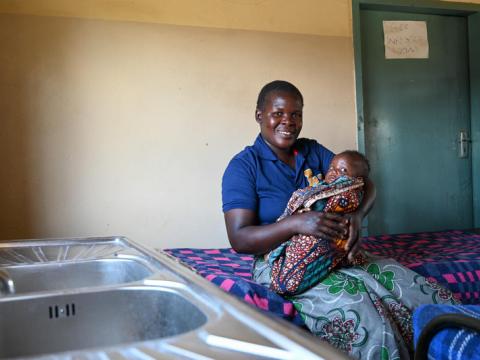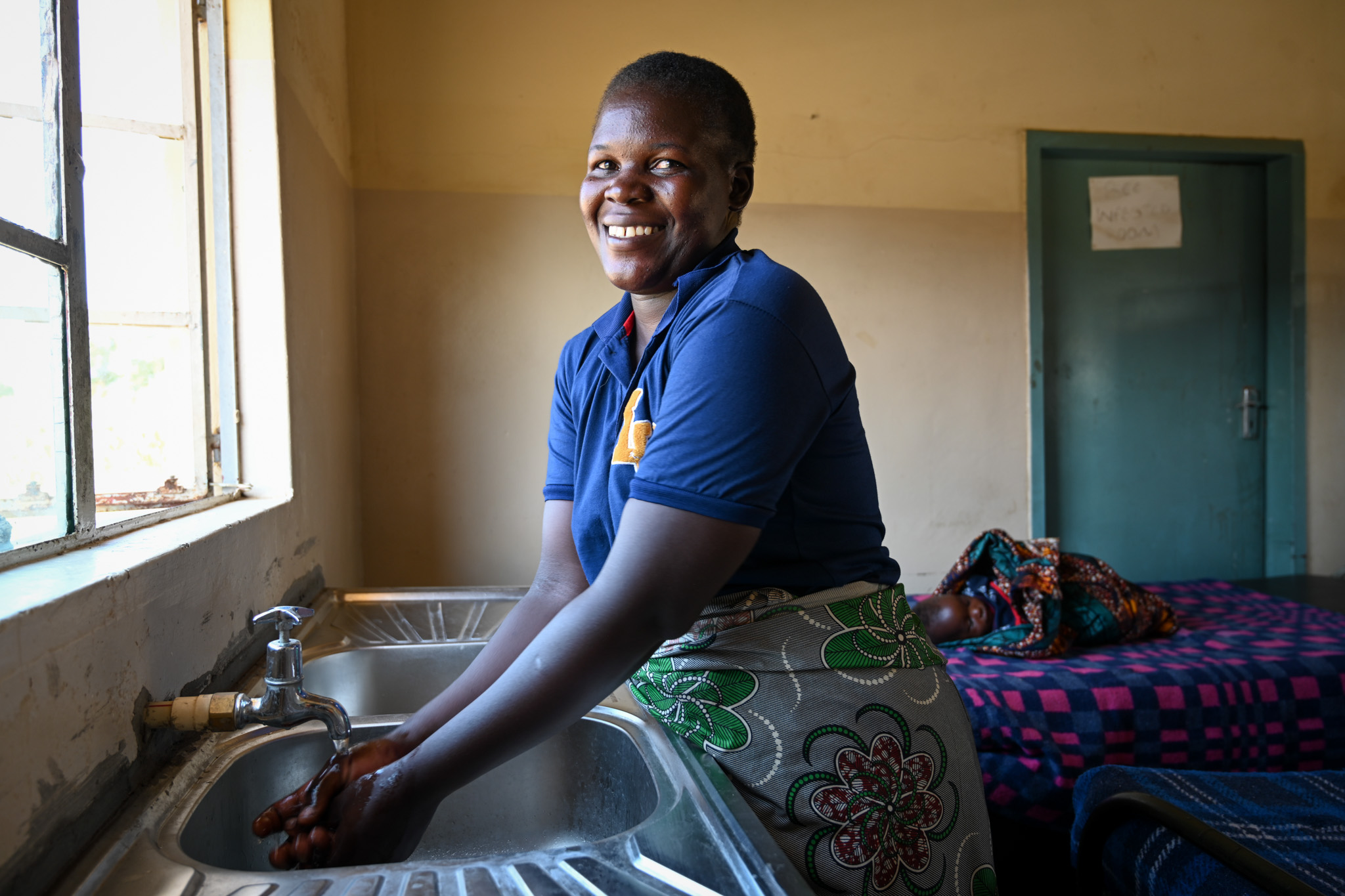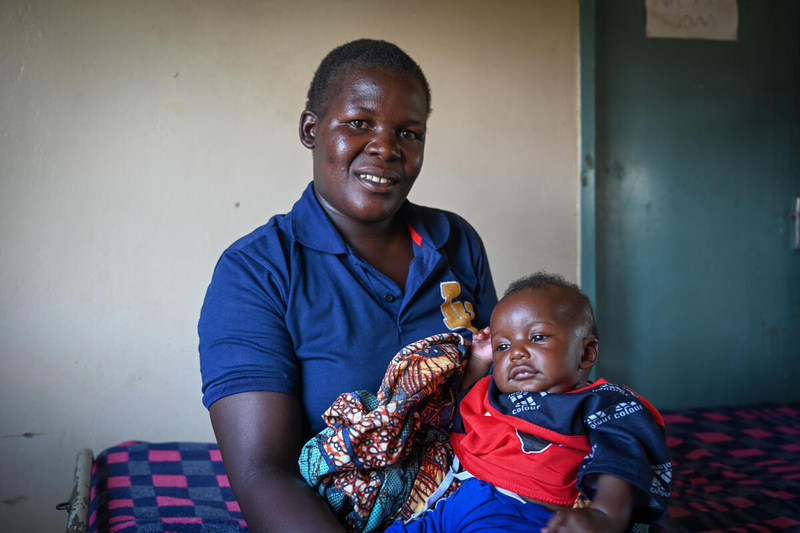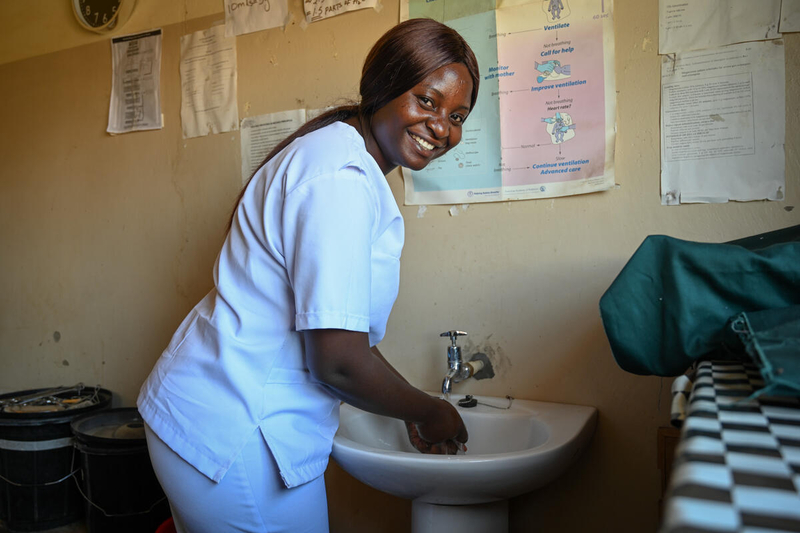Clean water for a healthy delivery

Micheelo, 27, a mother of four, lives in a small rural village called Kalama in the heart of Magoye District in the Southern Province of Zambia. A modest health facility stands about 5 kilometres from her homestead.
Filled with hope and anxiety, Micheelo was expecting her first child in 2013. And because she wanted the best for her baby and herself, she found her way to Kalama Rural Health Center with support from her mother. The anticipation of meeting her first child filled her with excitement and nervousness.

Hours passed, and Micheelo contractions grew stronger. Later in the night, Micheelo welcomed her baby, and the mother and child were in good health, but the agony hit Micheelo when she realized that the health facility did not have water to use and for her to take a bath.
“It was late at night and the baby came, I was overwhelmed with joy but I needed to take a bath. The clinic did not have water, and the only nearest water source was a school, which is about a kilometre from the clinic,” says Micheelo.
With hopes of helping her daughter feel comfortable, Micheelo’s mother braved the dark, hoping to at least fetch water in a small bucket for her daughter to bath. Unfortunately, for safety reasons, she found the school water hand pump was locked, and the water could not be accessed. In despair, her mother walked back to the health facility and waited for dawn so that they could seek other ways of having access to water.

The following morning, Micheelo was discharged. All she looked forward to was going home to take a bath and feel comfortable. “With a heavy heart, we walked out of the clinic. I thought Kalama was not a good facility to deliver from, and I told myself that I was never going to deliver from the same facility again,” she laments.
When she was expecting her second and third children in 2014 and 2018, Micheelo opted to deliver her children from another facility that was 12 kilometres from her village. Although it was far, expensive, and time-consuming for her to go there, she thought it was better than having a baby in a facility that did not provide her with water to practice good hygiene and sanitation.
“We used to go to Magoye health facility by bicycle. I used to get tired, but then it was better than not having a bath after childbirth,” she says.
And while she set journeys to deliver from an area kilometres away from her village, Micheelo’s biggest fears were that she could deliver her babies on the way. “Even as we rode to Magoye health facility, I kept asking myself what I would do if the baby came mid-way through our journey. But thank God such a thing did not happen.
As Micheelo prepared for the arrival of her fourth baby in 2023, a glimmer of hope appeared when she saw that World Vision, through the Survive to Thrive project, installed a mechanised water system at Kalama Rural Health Center.
“While expecting my fourth child, I went to Kalama clinic for ante-natal care. It was then that I realized that World Vision had provided the facility with clean and safe water, and immediately, I told myself that I would have this baby from this facility,” she said with a smile. World Vision installed a mechanized water system in health facilities like Kalama Rural Health Center to promote hygiene and sanitation practices and to ensure Health facilities have increased access to a basic drinking water source on premises, available to all people at all times.
With help from World Vision, the delivery room was transformed from a scene of despair to one of hope, and Micheelo delivered her baby from the health facility.
“I was happy to give birth at Kalama Clinic this time because it was clean, there was running water from the tap in the delivery room, and I was also able to take my bath there,” she says.
“I felt very comfortable, and I was not worried about hygiene or my health this time,” she said.
Micheelo is grateful to World Vision for its transformation to her community. She says the water provided at the health facility also helps the surrounding community.
“I am grateful to World Vision for transforming our lives because we now have access to clean and safe water,” she says.
Micheelo, 27, faced a bad experience after delivering her first child at Kalama Rural Health Center as the facility did not have water to enable her to take a bath and clean up.
